🎹 UPDATED REVIEW | April 1, 2022 – CDP-S350, PX-S1100, PX-S3100, Casio CDP-S100, CDP-S150, PX-S160, PX-350, PX-S360, PX-5S | Casio Portable Digital Piano Comparison | under $500 to $1000 | What makes them different and which one should you buy? The Casio company has had a long history in producing some very impressive 88-key portable digital pianos. Casio is well known for being an
![]()
“affordable” brand in terms of getting higher quality electronics for less money than the other brands when it comes to portable and home furniture cabinet digital pianos.
Here’s a bit of Casio history first: The Casio CDP-230R is a long ago discontinued model. It was an 88-note weighted key portable digital piano which was only offered at Costco for Costco members and that model was only available during the 4th quarter holiday season of the year on a limited basis. The Costco price on that model which came out over 5 years ago was $449 for a couple years. Then Casio upgraded that model to the CDP-235R which had a slightly (but not much) better piano sound and a different color (blue) display screen…but everything else remained the same including the key action, pedaling, and the $449 price and limited availability. I did a previous review on both of those Costco models and even though they had some fun and entertaining features, as a piano substitute they were just OK for being under $500. But after awhile Costco decided it was not worth carrying that model anymore and they are no longer carrying Casio digital pianos.
Since Casio had no large retail outlet to sell the CDP-235R to exclusively anymore, Casio decided to rename that model and call it a CDP-240 ($449 internet price) which was released in late 2018 as an exclusive product on Amazon. It was the same
![]()
piano as the previous CDP-235R that was at Costco, only it was being sold by Amazon as a different model number. While it was a still good product, its technology was pretty old so there were better options in this price range for Casio portable digital pianos, especially if you are interested in having a more realistic piano playing experience as opposed to just getting a lot of toy-like bells & whistles and a more artificial piano sound in those older models. So the bottom line for the CDP-240 is it is now discontinued and no longer available on Amazon and was considered the Casio “entry level” 88-key weighted key action portable digital piano.

Now Casio is offering current up-to-date models. At this time they would be the newer CDP-S100 ($449 internet price) along with a couple new upgraded models above that called the CDP-S150 at $479 internet price and the most recommended model CDP-S350 ($549 internet price). The CDP-S100 is available at Guitar Center stores and a few other general stores like that. The S100 cabinet along with an upgraded piano sound sample over previous CDP models is what makes them better. The key action is also improved and upgraded over previous CDP models as well as over the former CDP240 that was on Amazon until that one was discontinued. The new CDP-S150 is a step up from the current model CDP-S100 with a few good additional features including the additional optional triple pedal unit, a digital recorder to record your practice songs to hear how you are doing, and a 4-hand-play-dual feature that digitally divides the 88 keys into 2 separate 44-note keyboards so that 2 people can play the same song in the same octaves and practice that song together at the same time. The CDP-S150 sells for just $30 more and in my opinion worth that extra $30.
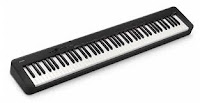
CDP-S150 is the big winner here. Besides the newer CDP-S350 having the better key action and acoustic piano sound over the models below it, it also has 700 instrument sounds, lots of interactive background styles, and some extra fun and useful features built in educational features including an intuitive LCD screen for easy feature navigation. When it comes to the getting a digital piano under $500 or less, the CDP models are great choices, especially the new CDP-S350 at $549…that one is a monster as compared to the other digital pianos under or near $500 such as the Yamaha P-125 or Roland FP10 or FP30X. In my opinion the new Casio’s would offer the “better bang for the buck” for most people. The CDP-S350 would be the best investment of the bunch in this price range…plus…it has a better, more realistic piano sound as compared to the more basic Casio CDP-S100 and CDP-S150 and the reason for that is the piano sample having been upgraded.
Although all three current model CDP-S models have only 64-note polyphony power as compared to the higher priced models like the Casio PX-S1100/PX-S3100 at $699 and $879 respectively having 192-note polyphony piano power, the CDP models can generally carry their own weight when it comes to playing piano, especially for the beginner. Polyphony power is important for producing a better, more authentic piano sound, especially when playing at a

higher skill level than beginner. Pedaling sound response and more organic tonal dynamics is important too and the 64-note polyphony piano chip can be a bit limiting depending on the kind of music you play. The 64-note polyphony sound chip is less money to produce so hence the lower price compared to the 192-note polyphony sound chip in the Casio PXS portable models. The question is, are you willing to give up the “better” for the “lower price” of these CDP models?
Casio’s next model was the PX-160 ($549 internet price) portable digital piano which they had out for over 2 years and has now also been discontinued. It came in 2 colors (black or custom white & gold) and it was the “Privia series” entry level” model weighted 88-key digital piano
with no interactive accompaniments, does not have hundreds of instrument sounds, and does not have a proprietary app like “Chordana Play” such as what’s available for the CDP-S350 and models above it. The PX-160 did have a good key action and more polyphony at 128-notes than the CDP-S series. However, the CDP-S350 is a noticeably more realistic portable 88-key digital piano as compared to the previous PX-160 (now discontinued) and lower priced CDP’s although it does cost a bit more as I mentioned earlier, but worth it. It just depends on how you are mostly going to use the piano. A couple other updates to the new CDP-S pianos is that they can both run on batteries independent from an a/c power adapter. That is pretty cool and very helpful if you want to travel with one of those pianos and don’t have access to a power source where you are. The CDP-S pianos also have a more compact & slimmer cabinet and weigh a little bit less at just 24 lbs…so it’s even easier to carry around if you are going to do that.
The next jump up in the new Casio pianos is to the PXS models including the PX-S1100 ($679 internet price) and PX-S3100 ($879 internet price) which just replaced the previous PX-S1000 and PX-S3000. Casio has obviously been making some changes lately to its model line-up for 2022. If you want more detailed info on the new PX-S1100 and PX-S3100, please read my latest reviews of those 2 pianos on this site. Both of the PXS models have a significantly more realistic and natural acoustic piano sound chip than any of the other Casio portable digital pianos under $1000 and it is clearly a major part of the PXS pianos. However, the PXS

models go much further in technology with significantly increases polyphony power to 192-notes vs the 64 note polyphony of the CDP models and the 128-note polyphony of the portable PX models.
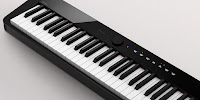
also allows the acoustic piano tones to have a noticeable larger and more dynamic tone than any past model of Casio has ever had and that includes a huge dynamic range of tone when playing from very light finger touch to very strong and heavy and anywhere in-between. Beyond all that the special effects section of the PX-S1100 & PX-S3100 are soooo much better than the other Casio pianos I’ve mentioned here which is important, even if you never thought that

type of thing would be important. This is because the special effects includes the all new “Hall Simulator” and “Acoustic Simulator” for Casio portable digital pianos.
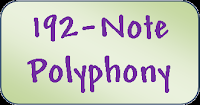
stage type pianos. These effects provide a more natural ambiance and environment for the acoustic piano sounds as well as a more natural sound environment for all of the 700 instrument sounds in the PX-S3100. The PX-S1100 is the more basic of these 2 models and is mainly for people who want to play piano and not do much else. However, even with that being said, the PX-S3100 allows for more control over the piano sound which can make your piano playing even more enjoyable. The PX-S1100 would be the basic model of the two PXS models like the CDP-S100 would be the basic model of the two CDP-S models.
Piano key action is also very important with regard to authenticity and natural key movement compared to a real good quality acoustic piano. The newer CDP-S series followed by the new PXS models with the most authentic piano playing experience in this price range having individually weighted and graded keys that no other portable digital pianos have in any brand under $1000. As a pure beginner you can likely be fine with any of these models in terms of piano sound, key action, functionality, etc simply because you are “starting from scratch” and don’t know what you are doing yet. However, there is such a distinct difference in quality and authenticity of the piano playing experience among these models that a person really should consider how much they like music, their desire in learning to play music, and if they want to get a longer term investment instead of the cheapest thing possible. If you are already spending close to $400 or $500 for the more basic models in terms of key action, piano sound, and pedaling, then what’s another $50, $100, or $200 to get something you can grow into instead of growing out of it.
To add even more “confusion” to the mix, Casio has 2 more portable digital pianos they offer under $1000 which is the CGP-700 ($849 internet price and is now discontinued) and the PX-360 ($999 internet price). I mentioned the word “confusion” because that’s what it
is for a lot of people…ca bit of confusion with so many choices and within similar price ranges. Casio would call it an opportunity to have more “channels of distribution” and be able to offer more choices. Casio has 8 models that are currently available at various stores throughout the the US and the CGP-700 and PX-360 are the only 2 models that have a large 5″ proprietary color touch screen built into those models. Since the user interface and navigation on the CGP-700 and PX-360 are more intuitive and easy to use than the other models, Casio does not produce a “controller app” for them like they do for the CDP-S and PXS models.
“Chordana” and it allows you to control nearly all of the piano functions of the CDP-S and PXS models from the color touch screen of your tablet device (iPad, etc) which makes those models even more intuitive to use than the CGP700 or PX-360, but you would need a tablet to do that. The CGP-700 is unusual as compared to all other Casio portable pianos in that it automatically comes with a furniture style stand and that particular stand has a built-in bass reflex speaker attached to it which gives the CGP-700 a much larger volume with much richer tone and big bass response. However, even though the CGP-700 is a very cool instrument, the actual piano sound sample in that model is not as realistic as the PXS models or the higher priced PX-360.
However, a beginner would not likely be able to tell the difference so it just depends on what is important to you with regard to how you are going to use these pianos and your experience with playing pianos. The higher priced PX-360 has many more features than the CGP-700 but does not come with the
additional furniture style “speaker stand” that you get with the CGP-700. Both the CGP-700 and PX-360 have 16-track MIDI recording & play-back as well as the ability to layer up to 4 sounds simultaneously and do a few other things that the PXS series cannot do.
To top it all off, Casio even has another portable model under $1000 called the PX-5S which is a cross between a regular Casio portable digital piano and a synthesizer because this model combines more traditional sounds of Casio digital pianos with
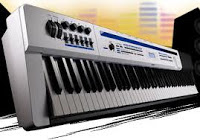
synthesis technology to create and edit sounds in ways that professionals might use on stage. This model has a smaller LCD display screen and is button controllable rather than having any touch screen. There is also no app that can work with this model unlike the new PXS series which uses that intuitive Casio Chordana app.. The key action in the PX-5S is identical to the CGP-700 and PX-360, which is a good thing, but the piano sound chip in the PX-5S is 256-polyphony as opposed to 128-polyphony in the the CGP-700 and PX-360. However, the new PXS models have 192-note
![]()
polyphony which is generally more than enough to do what you want musically speaking.
makes the 256-note polyphony more necessary. The PX5S is a 6 year old model at this point so is getting a bit old and yet is still a current model because it does things that no other Casio portable digital piano can do which is generally of more interest to pro studio and stage musicians than it likely would be to anyone else. Plus it has no built-in (internal) speakers which is another thing that sets it apart for all other portable Casio pianos.
The bottom line is…there are more “portable” lighter weight, self-contained digital pianos available from Casio under $1000 than the other companies (Roland, Yamaha, Korg, Kawai) combined! Casio pretty much owns that market right now and the best model in my opinion of all Casio portable digital pianos in terms of brand new functionality, features, realism of piano & instrument sounds, key action realism, pedaling response, and

interface technology would be the new PX-S3100 at $879 internet price in the US. This model pretty much has it all (minus only a few things) and for $849 it’s really a bargain in my opinion followed by the PX-S1100 and followed by the CDP-S350. You really cannot go wrong with any of the Casio 88-key portable digital pianos but for the money the new PX-S3100 definitely gives you the “biggest bang for the buck” and is a longer term investment with regard to you being able to grow into it instead of growing out of it compared to any of the models below it.

have an even more realistic piano sound chip, key action, pedaling, and internal speaker system but those pianos are at least 2 -3 times the price of the PX-S3000, so you would expect something that costs a lot more money to be better in some ways. However, pound for pound there is nothing that comes close to the PX-S3100 right now from anyone for under $1000 when it comes to a full featured portable digital piano.
a/c power, lightweight slim design cabinet with new digital touch button technology and flush mount display screen. along with the use of a proprietary app (Chordana) for your tablet (iPad/Android) that allows intuitive control of almost all features and functions

within the piano itself.
Finally, please take a look at a comparison chart below of the main specifications of the models CDP-S100, CDP-S350, PX-S1000, and the PX-S3000. The S350, S1000/S1100, and S3000/S3100 have many more features than what are listed, but these are the main specs. Remember, the new CDP-S150 is the same piano as the lower priced CDP-S100 but it has 3 additional features that I mentioned earlier for just $30 more. There is little reason in my opinion to buy a CDP-S100 when for just a little bit more you can get the CDP-S150. And better yet…I recommend you just jump up to the much better CDP-S350 at $549 if you still need to be closer to $500 (it’s worth the extra money) and cannot go further up to the better and more impressive PX-S1100 or PX-S3000. (click on comparison chart for larger view.)
If you want more info on new digital pianos and LOWER PRICES than internet discounts, please email me at tim@azpianowholesale.com or call direct at 602-571-1864.
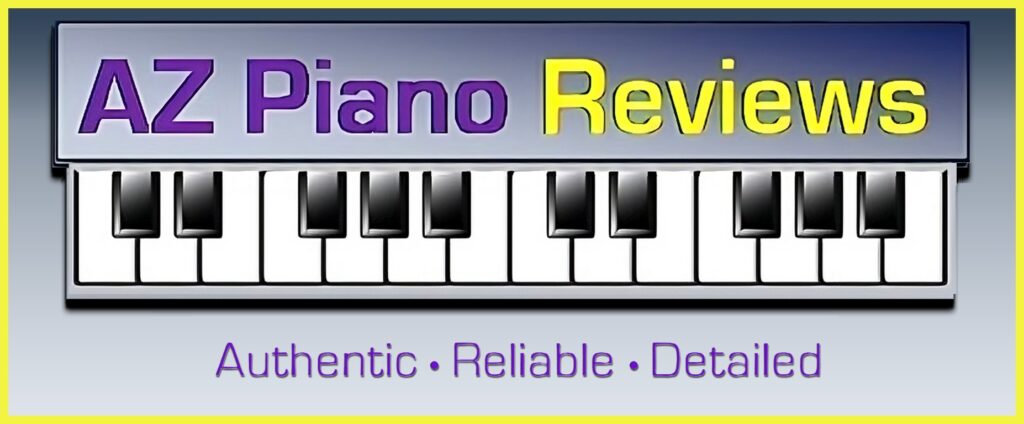


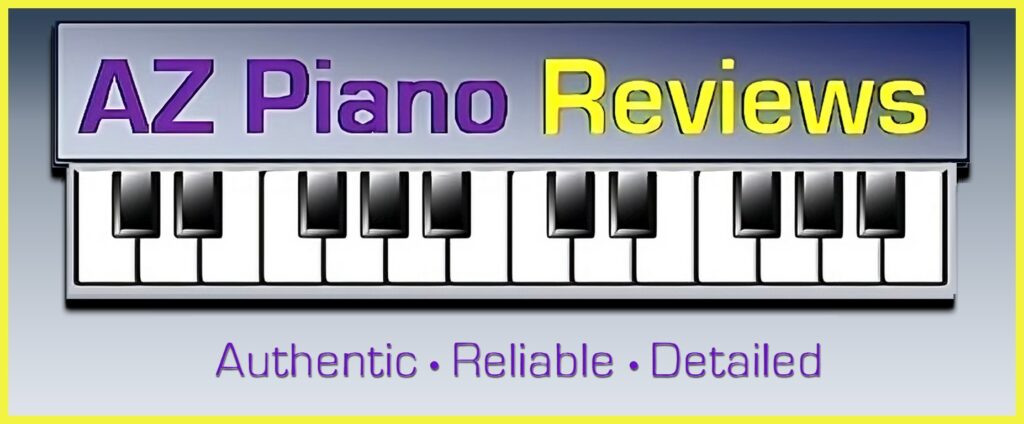
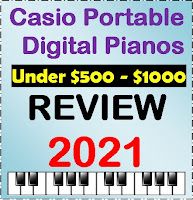
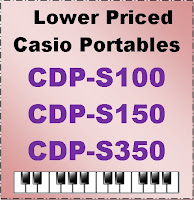



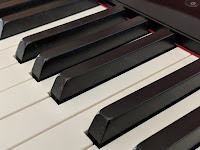

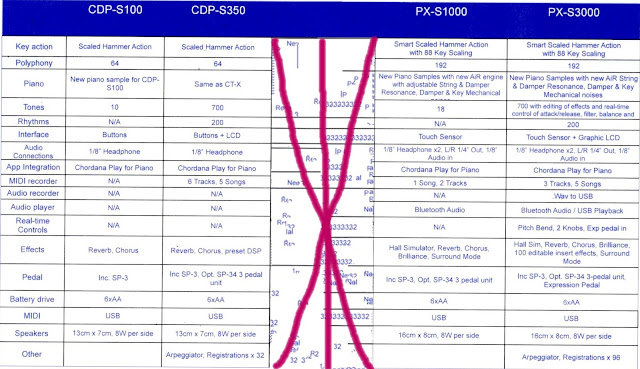



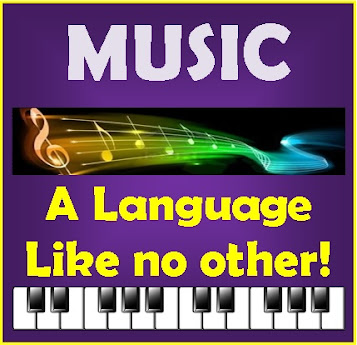
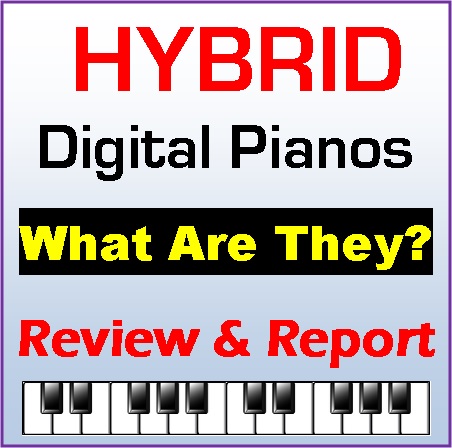
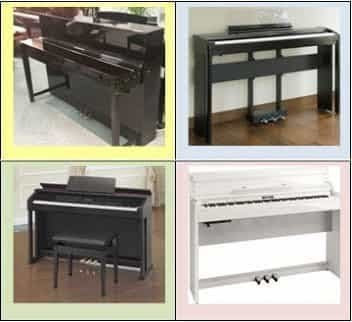
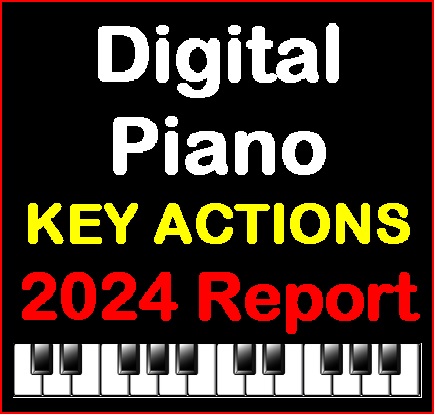
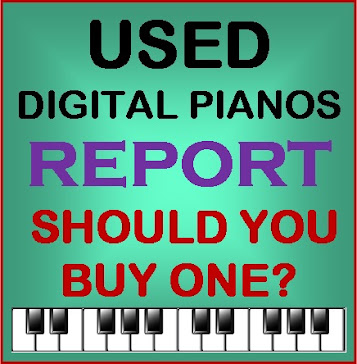
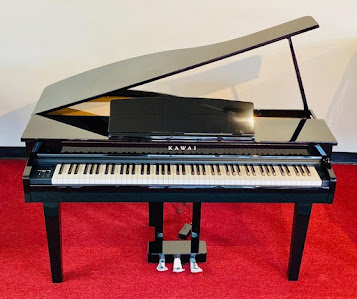
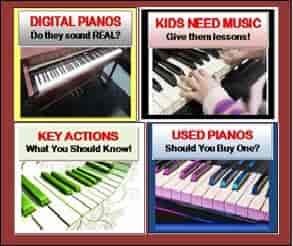
Me encantó leer el review de Tim Praskins, muy profesional, conoce el tema en profundidad. Tiene visión de conjunto y también específica de cada modelo. He visto varios webs en internet y videos en Youtube sobre reviews de digital pianos, hay algunos muy buenos, pero el de Tim Praskins me parece sobresaliente, es uno de los mejores, está en el top. Muy buena orientación para elegir un modelo. Muchas gracias Mr. Tim Praskins. Le escribiré a su correo personal. edoumeg@gmail.com